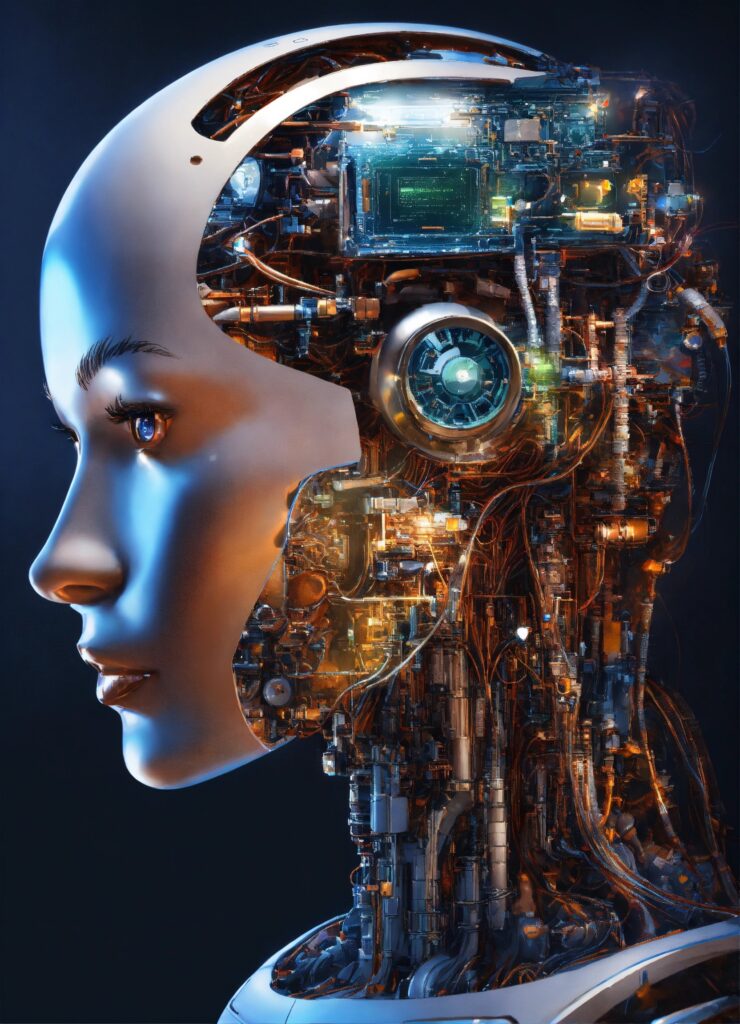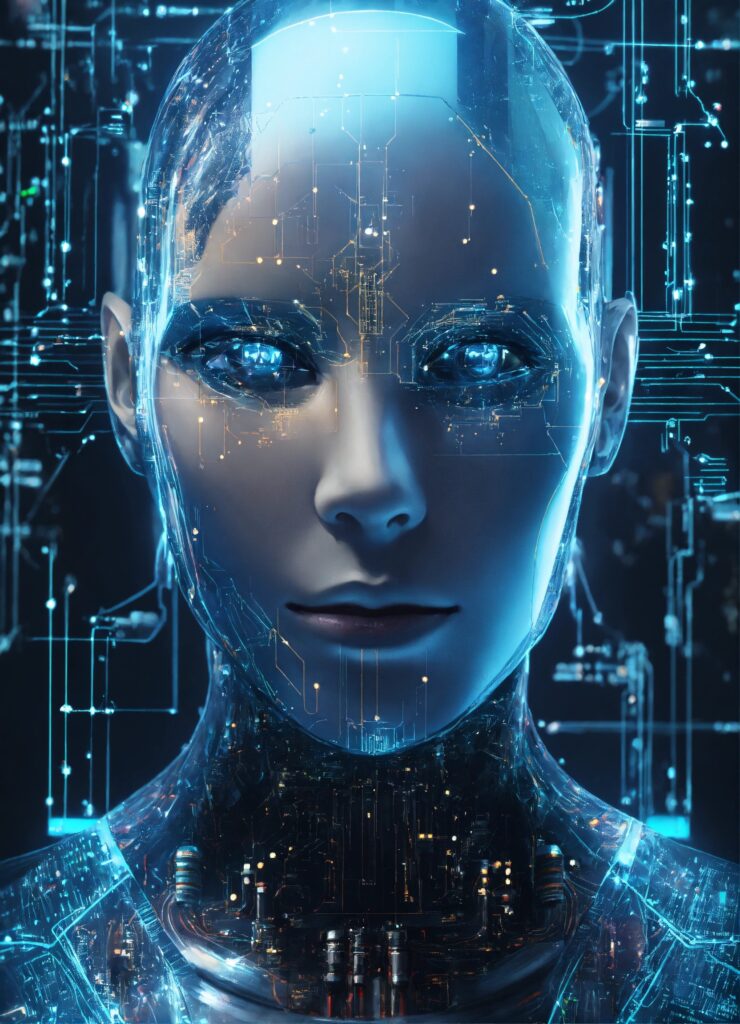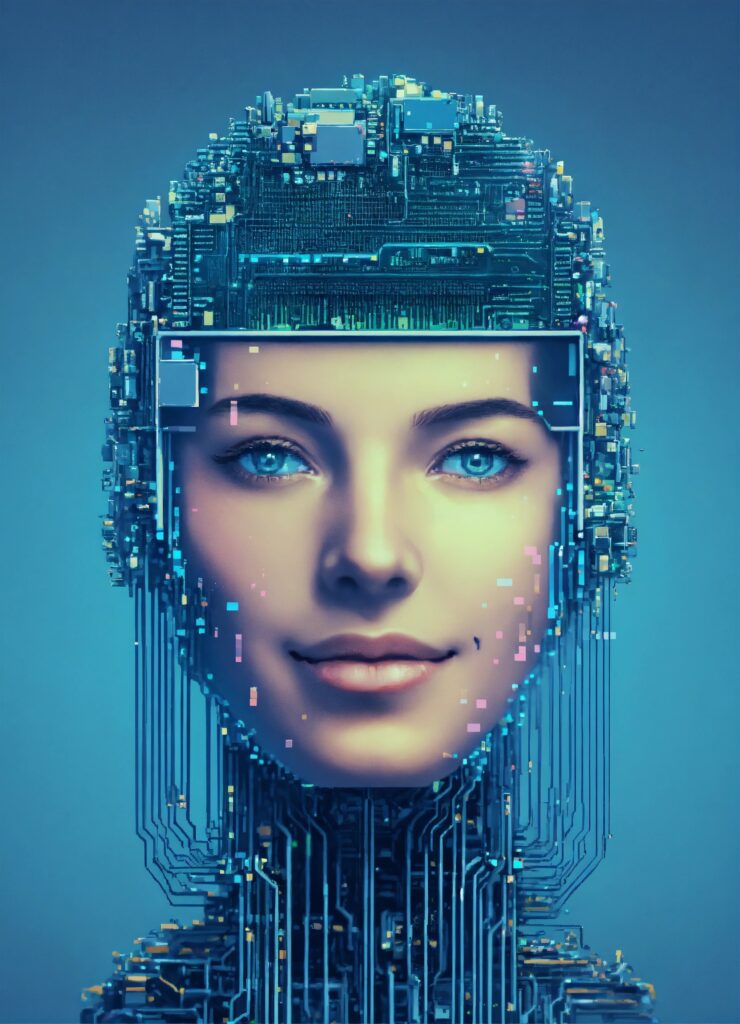-
Dec, Thu, 2023
Advantages and Disadvantages of Artificial Intelligence [AI]
Advantages And Disadvantages Of Artificial Intelligence [AI]
Table of Contents
What is Artificial Intelligence?
Artificial Intelligence (AI) refers to the simulation of human intelligence in machines programmed to think, learn, and perform tasks that typically require human intelligence. The goal of AI is to enable computers and machines to mimic cognitive functions such as problem-solving, reasoning, learning, perception, understanding natural language, and decision-making.
![Advantages And Disadvantages Of Artificial Intelligence [AI]](https://tradewithakanksha.com/wp-content/uploads/2023/12/the-power-of-AI-1024x585.jpg)
Machine Learning: It involves algorithms that enable computers to learn from data, identify patterns, and make predictions or decisions without explicit programming.
Neural Networks: These are models inspired by the structure of the human brain. They consist of interconnected nodes (artificial neurons) that process information and are used in tasks like image recognition and natural language processing.
Natural Language Processing (NLP): NLP enables machines to understand, interpret, and generate human language. It’s used in applications like chatbots, language translation, sentiment analysis, and text summarization.
Computer Vision: This field focuses on enabling machines to interpret and understand visual information from images or videos. Applications include facial recognition, object detection, and autonomous vehicles.
Robotics: AI plays a crucial role in robotics by enabling machines to perceive their environment, make decisions, and perform tasks autonomously.
AI systems can be categorized into two types:
Narrow or Weak AI:
These systems are designed to perform specific tasks or functions within a limited context. Examples include virtual assistants, recommendation systems, and facial recognition software.
General AI (AGI):
This type of AI refers to machines or systems with human-like intelligence capable of performing a wide range of tasks, learning from experiences, and adapting to new situations in a manner similar to human intelligence. AGI remains a theoretical concept and is yet to be achieved.
Advantages of Artificial Intelligence
Artificial Intelligence (AI) offers numerous advantages across various fields due to its ability to replicate human-like intelligence and perform tasks that typically require human intelligence.
Some of the key advantages of AI include:
Automation: AI enables automation of repetitive tasks, increasing efficiency and reducing human error. It can handle mundane tasks, freeing up human workers to focus on more complex and creative endeavors.
Decision Making: AI systems can analyze vast amounts of data quickly, extracting insights and patterns that aid in better decision-making. This capability is particularly beneficial in industries such as finance, healthcare, and marketing.
Improved Productivity: By streamlining processes and optimizing workflows, AI contributes to enhanced productivity in industries ranging from manufacturing to customer service.
Personalization: AI technologies can personalize user experiences by analyzing individual preferences and behaviors. This personalization is evident in recommendation systems used by streaming services, e-commerce platforms, and social media.
Innovation and Creativity: AI can facilitate innovation by assisting in the generation of new ideas, designs, and solutions. It can also aid in research and development by analyzing vast amounts of scientific data.
Cost Savings: Implementation of AI can lead to cost savings by reducing labor expenses, minimizing errors, and optimizing resource allocation.
Enhanced Healthcare: AI applications in healthcare, such as medical imaging analysis, predictive analytics, and personalized medicine, can improve diagnostics, treatment planning, and patient outcomes.
Autonomous Systems: AI enables the development of autonomous vehicles, drones, and robots that can perform tasks in hazardous or challenging environments without human intervention, thereby enhancing safety.
Customer Service and Support: AI-powered chatbots and virtual assistants provide round-the-clock customer support, offering immediate responses to inquiries and enhancing customer satisfaction.
Environmental Impact: AI can help address environmental challenges by optimizing energy usage, enabling predictive maintenance to reduce resource wastage, and facilitating more efficient resource management.
While these advantages showcase the potential of AI, it’s essential to consider and address ethical concerns, potential biases, and the impact on employment as AI continues to advance and integrate into various aspects of our lives.
Disadvantages of Artificial Intelligence
Despite the numerous advantages, artificial intelligence (AI) also presents several disadvantages and challenges:
Job Displacement: The implementation of AI and automation in various industries has the potential to replace human jobs, especially those involving repetitive tasks. This can lead to unemployment or the need for reskilling and upskilling for a workforce to adapt to new job demands.
Ethical Concerns: AI systems can inherit biases from the data they are trained on, leading to biased decisions or outcomes. Ensuring fairness, accountability, and transparency in AI algorithms remains a significant ethical challenge.
Security Risks: AI systems can be vulnerable to cybersecurity threats. Malicious actors can exploit vulnerabilities in AI systems, leading to data breaches, privacy violations, or manipulation of AI-powered systems for harmful purposes.
Dependence and Reliability: Overreliance on AI systems without appropriate human oversight can lead to a lack of critical thinking and decision-making skills. Moreover, AI systems might encounter errors or malfunctions, leading to disruptions in operations.
Lack of Creativity and Intuition: AI, while capable of performing specific tasks with remarkable accuracy, lacks human-like creativity, intuition, and emotional intelligence, which are valuable in many contexts.
Privacy Concerns: AI systems often collect and analyze vast amounts of personal data. This raises concerns about privacy infringement and the potential misuse of sensitive information without adequate safeguards in place.
Initial Costs and Implementation Challenges: Developing and implementing AI systems can be expensive, especially for smaller businesses or organizations. Moreover, integrating AI into existing infrastructures might pose compatibility and adaptation challenges.
Unemployment and Economic Disparities: Job displacement due to AI automation can contribute to economic disparities, affecting certain industries or regions more than others. This can widen the gap between skilled and unskilled labor and exacerbate socioeconomic inequalities.
Regulatory and Legal Challenges: The rapid advancement of AI technology often surpasses the development of adequate regulations and laws to govern its ethical use. This gap poses challenges in ensuring compliance and accountability for AI-driven applications.
Misuse and Weaponization: There’s a risk of AI technology being misused for malicious purposes, including the development of autonomous weapons or other destructive applications, posing threats to global security.
Addressing these disadvantages requires a comprehensive approach involving ethical guidelines, robust regulations, continuous research, and responsible deployment of AI technologies to mitigate risks and maximize benefits.
Artificial Intelligence (AI) holds immense importance due to its transformative potential across various fields and its ability to augment human capabilities.
Some key reasons why AI is important include:
Automation and Efficiency: AI enables automation of tasks that traditionally require human intervention, leading to increased efficiency, reduced errors, and cost savings. This is crucial in industries like manufacturing, logistics, and customer service.
Data Analysis and Decision-Making: AI can analyze large volumes of data at a speed and scale beyond human capacity. It helps in extracting valuable insights, patterns, and predictions, aiding better decision-making in fields such as finance, healthcare, and marketing.
Innovation and Problem Solving: AI fosters innovation by assisting in complex problem-solving, aiding in research and development, and facilitating the creation of novel solutions in various domains, including medicine, engineering, and scientific discovery.
Personalization and User Experience: AI technologies enable personalized experiences for users by analyzing preferences and behaviors. This personalization is evident in recommendation systems, virtual assistants, and tailored content across multiple platforms.
Improved Healthcare: AI applications in healthcare, such as medical imaging analysis, predictive analytics, and drug discovery, enhance diagnostics, treatment planning, and patient care, potentially saving lives and improving outcomes.
Autonomous Systems: AI drives the development of autonomous vehicles, drones, and robots that can operate in hazardous or complex environments without human intervention, enhancing safety and efficiency.
Addressing Global Challenges: AI contributes to addressing global challenges such as climate change, resource management, and healthcare disparities by optimizing processes, predicting outcomes, and finding innovative solutions.
Economic Growth and Competitiveness: AI innovation stimulates economic growth, encourages entrepreneurship, and enhances competitiveness for businesses and nations investing in AI research, development, and implementation.
Enhanced Customer Service: AI-powered chatbots, virtual assistants, and automated support systems provide efficient and round-the-clock customer service, improving user satisfaction and engagement.
Societal Impact: AI can potentially assist in solving societal issues, including poverty alleviation, education access, and resource distribution, by optimizing resource allocation and facilitating innovative solutions.
The importance of AI lies not just in its technical capabilities but also in its potential to reshape industries, improve quality of life, and tackle some of the world’s most pressing challenges. However, responsible development and ethical use of AI are crucial to harness its benefits while mitigating potential risks and challenges.
Advantages and Disadvantages of AI in Different Sectors and Industries
Certainly, AI presents both advantages and disadvantages across various sectors and industries. Here are some examples:
Healthcare:
Advantages:
- Medical Imaging and Diagnostics: AI aids in analyzing medical images (like X-rays, MRIs) for more accurate diagnoses.
- Predictive Analytics: Helps in predicting disease outbreaks and personalized treatment plans based on patient data.
- Drug Discovery: Accelerates drug discovery by analyzing large datasets and identifying potential drug candidates.
Disadvantages:
- Ethical Concerns: AI-driven decisions in healthcare raise ethical questions regarding patient privacy, biases in algorithms, and decision-making transparency.
- Overreliance: Excessive reliance on AI for diagnoses may lead to complacency among medical professionals, overlooking critical aspects of patient care.
Finance:
Advantages:
- Risk Management: AI algorithms can assess risk more accurately in financial transactions and investments.
- Fraud Detection: Helps in identifying fraudulent activities by analyzing patterns in transactions.
- Algorithmic Trading: AI-powered algorithms execute trades based on market conditions at high speeds
Disadvantages:
- Market Volatility: Over-reliance on AI in trading can potentially exacerbate market volatility due to rapid automated transactions.
- Data Security: With the use of AI in financial services, the security of sensitive financial data becomes a major concern due to the potential for cyber-attacks
Manufacturing:
Advantages:
- Automation: AI-driven robotics streamline production lines, improving efficiency and reducing errors.
- Predictive Maintenance: AI predicts equipment failures, reducing downtime and maintenance costs.
- Quality Control: AI-powered systems detect defects in real-time, ensuring higher-quality products.
Disadvantages:
- Job Displacement: Automation could lead to the displacement of human workers, potentially causing unemployment.
- Initial Costs: Implementation of AI-driven systems in manufacturing may have high initial setup costs.
Customer Service:
Advantages:
- 24/7 Support: AI-powered chatbots provide round-the-clock customer support.
- Personalization: AI analyzes customer preferences for tailored recommendations and interactions.
Disadvantages:
- Lack of Human Touch: AI-driven customer service might lack empathy and human understanding in certain situations.
- Misinterpretation: Chatbots might misinterpret complex queries or emotions, leading to customer dissatisfaction.
Transportation:
Advantages:
- Autonomous Vehicles: AI in self-driving cars can potentially reduce accidents and improve transportation efficiency.
- Traffic Management: AI optimizes traffic flow and predicts congestion, improving overall transportation.
Disadvantages:
- Safety Concerns: Reliability issues and safety concerns remain significant challenges in autonomous vehicles.
- Job Displacement: Automation in transportation might lead to job losses in sectors like driving and logistics.
Each industry’s adoption of AI brings unique advantages and challenges, emphasizing the importance of ethical considerations, regulation, and responsible integration to maximize the benefits while mitigating potential risks.




